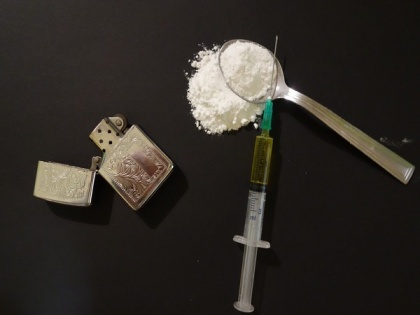Addiction relapse caused by drug-seeking habit, not just drug: Study
By ANI | Updated: December 18, 2021 11:50 IST2021-12-18T11:43:13+5:302021-12-18T11:50:03+5:30
A new study has identified the maladaptive nature of drug-seeking habits and how they contribute to the perpetuation of addiction by promoting the tendency to relapse.

Addiction relapse caused by drug-seeking habit, not just drug: Study
A new study has identified the maladaptive nature of drug-seeking habits and how they contribute to the perpetuation of addiction by promoting the tendency to relapse.
The study has been published in the 'Biological Psychiatry Journal'.
Given the importance of the drug itself in the development and perpetuation of SUD, the research community has understandably focused on the brain's adaptations in response to exposure to addictive drugs, such as cocaine, leading to a better understanding of the mechanisms underlying the consumption of these drugs. But people with SUD do not just take addictive drugs, they spend a great deal of time foraging for these drugs over long periods of time. During drug foraging, many compulsive behaviours characteristic of substance use disorder (SUD) manifest themselves, particularly during episodes of relapse to drug-seeking following periods of forced abstinence.
"Therefore, we found it important to consider the psychological and neural mechanisms of the tendency to inflexibly engage in drug-seeking behaviours, which may reflect the development of maladaptive drug-seeking habits," said David Belin, PhD, the study's senior author
In rats, drug foraging over long periods is maintained and invigorated by drug-paired cues, much like in people. In both rats and people, engagement in foraging behaviour became satisfying in its own right.
"When they are prevented from enacting their drug-seeking behaviour, in conditions for instance like incarceration in humans, individuals experience the building of internal distress that results in explosive behaviour at relapse, which is mediated by so-called 'negative urgency," said Dr Belin.
"Notably, this study demonstrates that development of 'incentive habits' enables the recruitment of flexible, goal-directed behaviours at relapse," he added - namely, the relief-inducing fulfilment of the drug-seeking habit, rather than the drug itself. That negative emotional urgency represents a risk factor for relapse and continued SUD.
The study bolsters support for the idea that drug addiction is a psychiatric disorder, and it identified the development of ingrained habits as a key psychological process that contributed to the perpetuation of drug-seeking behaviour and relapse.
John Krystal, MD, editor of Biological Psychiatry, said of the work, "There has been a historic focus on negative emotional states as a trigger for relapse to substance use. Most of the focus on negative emotions has been directed to comorbid anxiety and mood disorders. Here, the authors point to negative emotional urgency related to the inability to execute the habit as an important new risk mechanism."
( With inputs from ANI )
Disclaimer: This post has been auto-published from an agency feed without any modifications to the text and has not been reviewed by an editor
Open in app